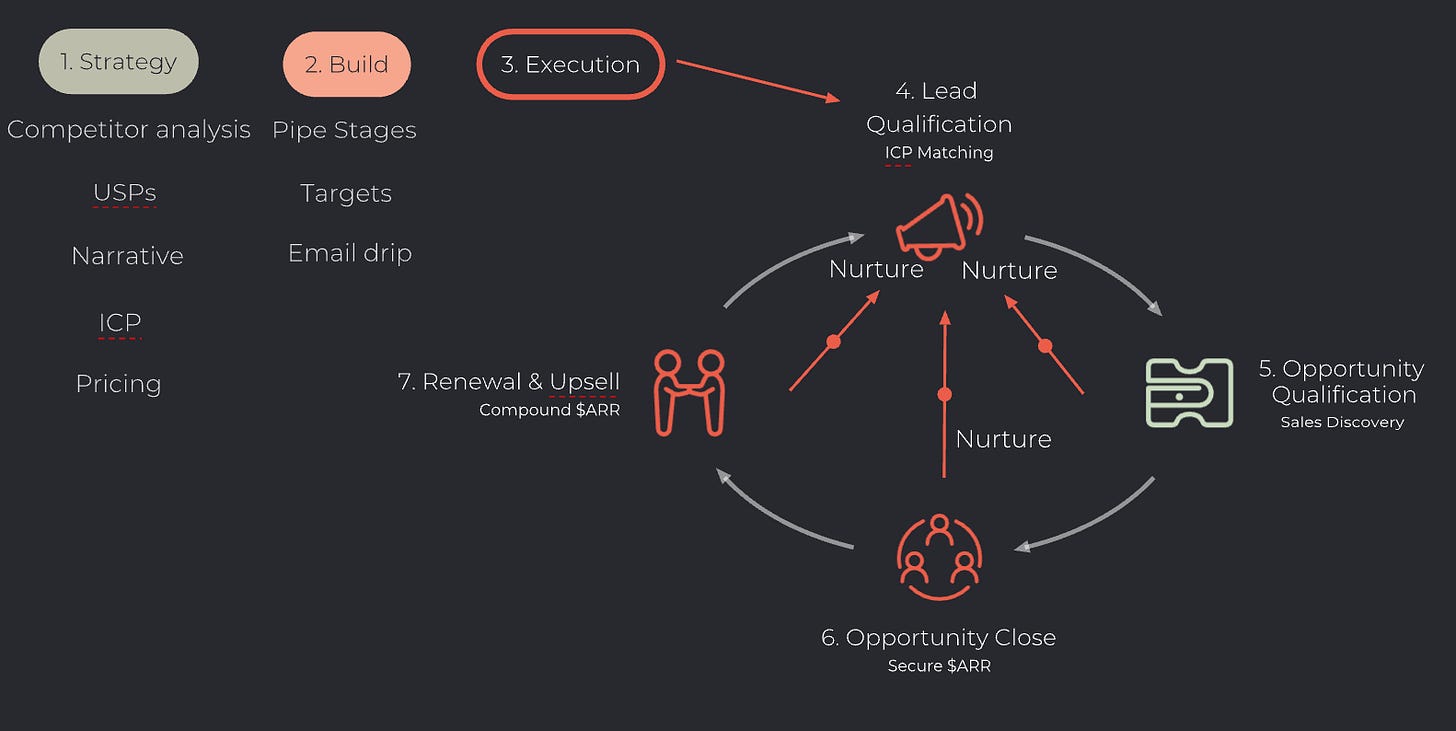
Playbooks are a fool's gold
Oct 10, 2021Frameworks are where it's at
Architects are very different to interior designers.
Those peddling sales playbooks are often interior designers.
What you really want is the architect.
They’re the folk that masterminded the framework. Those frameworks will spawn playbooks for decades to come.
Venture capitalists, founders, CEOs and leaders all ask for playbooks. Playbooks are regarded as the secret to growth. But in reality, playbooks hold little relative value. The real value lies in the framework that sits behind the playbook, and one’s ability to adapt the content within those frameworks for each unique environment.
In the last 10 years, I’ve created and iterated playbooks across a multitude of sectors.
Every playbook looked different but had the same effect - exponential revenue growth, so it’s easy to see why people ask for playbooks.
However, it’s the framework that underpins the playbook itself that offers the inherent value.
Today my clients hire me, not for those playbooks, but for the frameworks that enabled the playbooks to exist. And I work with their teams to build out unique playbooks that apply specifically to their go-to-market strategy.
If you’ll allow me, I’d love to bring this to life for you.
A sales discovery framework:
Sales discovery is one of the most critical phases of the sales process.
My framework for sales discovery has approximately 8 phases and 15 stages, and it starts with engaging your SDR, and finishes with a deep debrief with customer success, with a whole load of traditional selling in between.
These phases and stages are generic to any company.
However what you say and how long you spend in each phase and stage will depend largely on your product and buying audience.
But regardless of the company, you HAVE to go through these phases to run an optimal process.
In fact, it’s my belief that it’s this framework that has seen my companies constantly beat the average SaaS meeting-to-close ratio, which currently sits at 22%. Using this framework my teams routinely win 50% or more of meetings they accept.
Here’s a very brief summary of my framework within the sales discovery stage for a 1-hour meeting, for the first meeting in an enterprise SaaS motion:
1) T-1 week: research & agenda setting
2) T-1 hour: attitude and tone
3) 0-10 mins: Scene setting
4) 10-30 mins: Listening (discovery)
5) 30-40 mins: Sharing (demo, maybe!)
6) 40-45 mins: Re-hash
7) 45-50 mins: Confirmation
8) 50-60 mins: Next steps
Of course, the devil is in the detail. Within these phases are 15 stages or milestones I and my teams are trying to hit, and how we set up each phase and execute each stage are critical factors in our success.
(Note: Look out for a course I’ll be releasing in about 4 weeks that will dive deep into these phases and stages so that you too can successfully deploy this approach)
The most critical outcome of this framework is alignment across the team. It’s easy to understand and justify and it translates to the following:
-
Realistic pipelines
-
A common language across the sales org
-
Increased meeting-to-close rates
-
Increased ACV
Frameworks for every stage
Frameworks need to exist for every stage of the GTM flywheel, and the base frameworks are:
-
competitor analysis,
-
unique selling points
-
ideal customer profiling
-
pricing
With my clients, I over-index on this base layer. So many founders and CEOs don’t want to go back to this base layer, but it’s key. The frameworks here are gold. They lay the foundation for company wide alignment. And the results are mind-blowing!
Frameworks are what help companies move from funnels to GTM flywheels. There are multiple frameworks that exist in the flywheel - see diagram below:

Playbooks:
Hopefully, now it’s obvious that a playbook is unique content that sits within the framework.
Where I see most sales leaders fail, is the following:
1) They don’t appreciate that their playbook sits within a framework - likely because that playbook was passed down to them.
2) They don’t appreciate that their playbook almost certainly won’t translate from one company or one sector to the next. They ignore that fact and attempt to shoehorn their playbook in regardless, causing untold damage, and eventually getting fired.
3) They’re not prepared to do the work to either understand the framework that underpins the playbook, and/or..
4) ..they are not willing or able to create unique playbooks for their new environment
Summary:
Playbooks are the end result, and that’s where you want to get to, however getting there is not a foregone conclusion. You need to look for more.
If someone has a playbook, you must challenge them to explain the underlying framework that sits behind the playbook. This will reveal a lot about the authenticity of the playbook and their appreciation of the framework that made the playbook possible
If you’re a sales leader, challenge yourself to understand the framework. The result is powerful. It’s the main reason I’ve been able to successfully apply myself across multiple sectors throughout my career.
Those frameworks have enabled me to have success across Adtech, Martech, Edtech, Eventtech and now Crypto. It’s given me fleet-of-foot to choose to operate in areas that get hot versus pigeon-holing myself into a sector that may go cold or I that I no longer enjoy.
You can and should do the same, it’s a power move!
Be the architect, hire the interior designers.
Wayne
